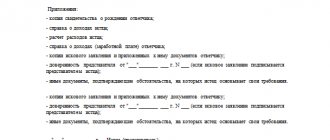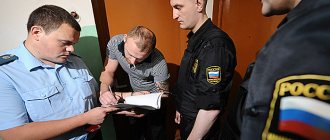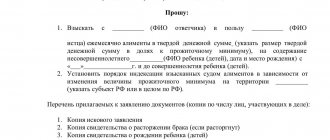Law firm Shmeleva and Partners
Note to businessman
1 472
The recovery of legal costs in most cases falls on the losing party. However, an appropriate application for the collection of legal costs or their distribution must be filed. The collection of legal costs becomes more complicated when a dispute is being considered to which the Russian Federation is a party. For example, when the authorities mistakenly found an entrepreneur guilty, the court made a corresponding decision, which was subsequently challenged.
Therefore, businessmen are forced to resort to the help of lawyers, since all costs of resolving a conflict with a counterparty or the state require documentary evidence and proper justification.
A huge amount of evidence may be required, several court hearings and even forced compromises (reducing the amount of costs, abandoning some of them, and so on).
Entrepreneurs need to understand that even having receipts for each service paid will not help fully cover expenses. In practice, courts prefer to reduce the amount of compensation. Costs are never fully covered, if only because there are doubts about the need for a number of services.
Despite this, our lawyers have examined this issue and developed a number of tips that will increase the chances of recovering the legal costs incurred.
List of legal costs
Costs include:
- representative services;
- cost of examination;
- postal items;
- fare;
- costs for issuing a notarized power of attorney.
The list of costs is open. Most often, judges consider applications for the recovery of legal costs for a representative, and therefore the main amount of money is paid by applicants for highly qualified legal assistance.
It is not always possible to receive a full refund. When considering such issues, the judge proceeds from reasonable limits within which funds are subject to compensation.
The Supreme Court of the Russian Federation noted that when resolving the issue of reimbursement of costs, it is legally significant to establish a connection between the amount of costs incurred and their justification, necessity and reasonableness, based on the prices that are usually set for such services.
Reasonable costs in established practice mean the costs that would be charged for similar services under similar circumstances. When determining reasonableness, the volume of the stated requirements, the price of the claim, the complexity of the case, the volume of services provided by the representative, the time required for the preparation of procedural documents, the duration of the consideration of the case and other circumstances are taken into account.
When resolving the issue of the amount of money collected for reimbursement of costs, the court does not have the right to reduce them arbitrarily, unless the other party raises objections and provides evidence of the excessiveness of the amount of costs collected.
Are you going to court? Study court decisions on similar cases. The database of judicial practice in ConsultantPlus will help you find them (get free access to it by clicking on the link below). The database contains decisions of all Russian courts, and the search is as simple as in Yandex.
Who pays the legal fees?
If you win at trial, the loser is required by law to pay you all costs, including attorneys' fees.
It is the reluctance to face high costs that often leads a person to refuse to go to court. But if you are sure that you are right, then you don’t have to delay the claim; if you win, the court will oblige the losing party to compensate for the costs incurred, and you will return the costs. Civil trial lawyers have entered into an agreement with you and issued receipts, now it’s time to compensate them and present them to the Defendant.
USEFUL: watch a video with tips on claiming legal costs, the deadline for this, as well as challenging the amount of collected costs, write your question in the comments of the video to receive a FREE answer
How to write a claim for reimbursement
The document is drawn up in any written form. There are no approved forms for such an application. Interested parties draw up it with the obligatory content of certain information, such as the case number, details of the court decision, information about the costs incurred in the case, the total amount of costs. Evidence of the costs, justification and necessity for them must be attached.
| IN __________________________ PLAINTIFF: ___________________________________ RESPONDENT: ________________________________ Case No. ______________ STATEMENT on reimbursement of legal expenses ____________________________ a lawsuit was filed by ___________________________ against ___________________________. According to the decision of _____________________, in favor of __________________, _______________ rubles were recovered from ________________________. The judicial act entered into legal force _____________. During the legal proceedings, _________________________ expenses were incurred for the services of a representative, postage and execution of a notarized power of attorney in the total amount of ________________ rubles (documents are attached). According to Art. 98 of the Code of Civil Procedure of the Russian Federation, the party in whose favor the court decision was made, the court awards the other party to reimburse all legal costs incurred in the case. Considering the above and guided by the provisions of civil procedural legislation, WE ASK THE COURT: To recover from ________________________ in favor of _________________ legal costs in the amount of ____________ rubles. Application:
CEO _____________ |
If such an application for compensation is submitted after the final act is issued by the judge, then it is not a claim and is considered within the framework of the previous case in an open court session with the participation of all persons involved in the case.
Time limit for appealing a ruling on the collection of legal costs
According to Article 332 of the Civil Procedure Code of the Russian Federation, a private complaint or a prosecutor's presentation may be filed within fifteen days from the date of the ruling by the court of first instance, unless other deadlines are established by this Code.
Thus, in case of disagreement with the ruling, the defendant and third parties have the right to file a private complaint against the judicial act with the relevant regional court, indicating the circumstances why he considers it illegal and unfounded, no later than fifteen days from the date of issuance of the appealed ruling.
more about the collection of legal costs on our website here
When and where to apply
Current legislation provides for two options for filing a claim for compensation in court:
- Filing a statement of claim with representation costs or filing a corresponding petition for compensation within the framework of the case before the final judicial act is issued, and the judge will reflect his decision on this issue in the decision.
- After the final decision has been made. A similar document can also be submitted to an arbitration court if the dispute was considered in accordance with the provisions of the Arbitration Procedure Code of the Russian Federation. Based on the results of the review, the judge makes a decision.
When choosing the second filing method, you must meet the deadline provided by the legislator. The period for filing an application with the court is three months from the moment the final judicial act enters into legal force (Article 103.1 of the Code of Civil Procedure of the Russian Federation, 112 of the Code of Arbitration Procedure of the Russian Federation). If there are valid reasons for missing the deadline, the court restores the deadline for filing the application.
Using a specific case as an example
In March 2021, a client who had previously lost her case contacted me. Claims were made against her to recover legal costs. Considering them excessive, I took up this matter.
Studying the case materials.
A study of the case materials showed that the representative prepared 2 procedural documents: one standard (succession + cancellation of a default judgment), the second - an objection to the statement of claim. The representative also participated in two court hearings, each lasting 55 minutes, taking into account the removal of the court to the deliberation room and the announcement of the operative part of the decision, one court hearing, again standard (succession + cancellation of a default judgment). All! any further traces of activity .
Note: Regarding the length of court hearings, see below
The complexity of the matter.
When assessing the complexity of the case, I drew the court’s attention to the fact that the resolution of the case depended only on establishing the fact that the defendant did not have the authority to enter into a simple partnership agreement. As a matter of fact, after checking the power of attorney, where there were no such powers, the matter ended there. Obviously, such a case cannot be considered complex.
Duration of consideration of the case.
Additionally, I asked the court to take into account that the duration of consideration of this case depended, among other things, on the dishonest behavior of the original defendant, since she did not appear at the court hearings; there are no valid reasons for the failure to appear in the case materials. This was precisely the reason for the unreasonable costs of paying for the assistance of a representative to cancel the court’s decision in absentia.
Study of the Agreement (agency agreement)
A study of the agreement (one of four) showed that the agreement provided for the scope of work in the appellate court, 4 positions:
- paperwork
- preparation of documents for court;
- representing the interests of the Principal in the appellate court;
- participation in the trial in the appellate court.
However, the case materials do not contain evidence of the execution, preparation and submission of any documents to the court, as well as representation of the interests of the principal in the court of appeal; there was only representation in court.
Thus, the Agency Agreement was only partially executed: 1 out of 4 positions.
Comparison of stated requirements with average prices in your region
Many are indignant that the decisions of the Bar Chambers impose on us some “average” (or “minimum”) prices. In fact, from the point of view of collecting legal costs (or opposing them), this is a very useful weight.
BC: The defendant has the right to recover legal costs from the plaintiff who filed a complaint against the decision
In 2021, OJSC "Krasnodar ZIP" filed a claim against the administration of Krasnodar and LLC "InvestGroup" to invalidate (void) the contract for the sale and purchase of a land plot and to apply the consequences of the invalidity of a void transaction in the form of declaring the ownership rights of "InvestGroup" absent. for the disputed land plot and cancellation of the registration record of the right in the Unified State Register. "InvestGroup" filed a counterclaim to recognize the absence of ownership rights to the sewerage system and asphalt concrete driveway, which are partially located on the disputed land plot. The judicial acts adopted in the case rejected all the stated claims.
In 2021, InvestGroup tried to recover legal costs in the amount of 307,380 rubles from the Krasnodar ZIP company. However, the courts of appeal and cassation refused to satisfy his demands. The society did not agree with the decisions of the courts and filed a cassation appeal to the Supreme Court.
Having considered the complaint in June 2021, the Judicial Collegium for Economic Disputes of the Armed Forces of the Russian Federation found the following: the courts considered that since all the stated claims were rejected, the parties incurred the same costs and there were no legal grounds for collecting legal costs. In this case, each party must bear its own legal costs. However, in Determination No. 308-ES16-19933, the RF Supreme Court came to a different conclusion, indicating that the courts committed a significant violation of the rules of procedural law.
Referring to paragraph 30 of the Resolution of the Plenum of the Armed Forces of the Russian Federation of January 21, 2016 No. 1 “On some issues of application of legislation on reimbursement of costs associated with the consideration of a case,” the Supreme Court noted that the person who filed the appeal, cassation or supervisory complaint, as well as other persons who participated in the consideration of the case at the appropriate stage of the process, but did not file a complaint, have the right to compensation for legal costs if the final judicial act is adopted in their favor. The person who filed a complaint, the satisfaction of which was refused, may be charged the costs of other participants in the process associated with its consideration.
The Supreme Court indicated that in the courts of appeal and cassation the case was considered based on complaints from the Krasnodar ZIP company only in part of its requirements. At the same time, InvestGroup was not the initiator of the processes and only defended its interests. The RF Supreme Court concluded that the applicant has the right to reimbursement of legal expenses for the services of a representative, quashed the contested judicial acts and sent the case for a new trial.
VEGAS LEX senior lawyer Kirill Nikitin supported the position of the RF Supreme Court, calling the Court’s ruling legal and justified. He noted that the courts formally approached the distribution of legal costs, limiting themselves to an analysis of the relevant legal relations that arose in connection with the refusal to satisfy the statement of claim and counterclaim. “The refusal of the courts to satisfy the application for the collection of legal costs due to the refusal to satisfy the counterclaim of InvestGroup LLC seems untenable and contrary to the norms of the current legislation and materials of law enforcement practice,” he believes.
Kirill Nikitin draws attention to the fact that the determining factor in resolving the issue of distribution of legal costs is the establishment of the legal status of one or another party in the context of “winner - loser”. At the same time, he noted, based on the literal interpretation of Part 1 of Art. 110 of the Arbitration Procedure Code of the Russian Federation, the legislator provided for the need to establish the “winner” in relation to each judicial act adopted during the consideration of the case. “Taking into account the fact that judicial decisions adopted by courts of appeal and cassation instances are referred to Art. 15 of the Arbitration Procedure Code of the Russian Federation to independent judicial acts, the courts must resolve the question of in whose favor the judicial act was adopted, in relation, among other things, to decisions of courts of appeal and/or cassation, regardless of the decision of the court of first instance,” the lawyer explained.
In addition, Kirill Nikitin noted that courts extremely rarely issue judicial acts like this, the lawyer said and added that the corresponding legal position was enshrined in the materials of judicial practice, including in the decisions of the Arbitration Court of the North Caucasus District, which considered the case (for example, decisions dated June 13, 2021 No. F08-3811/2018 in case No. A63-17482/2017, dated February 9, 2021 No. F08-10541/2016 in case No. A63-16288/2012).
Lawyer Roman Makhov has the opposite opinion. According to him, despite the fact that the aforementioned Resolution of the Plenum of the Supreme Court of the Russian Federation No. 1 was adopted more than two years ago, its provisions are not always applied by lower courts, and therefore the Supreme Court periodically overturns their decisions as taken with significant violations of procedural law.
Legal group lawyer Vadim Stetsenko agreed with his colleague. He noted that from time to time, courts, even federal district courts, do make mistakes. In addition, he expressed the opinion that the determination of the RF Armed Forces can hardly be called fateful and capable of radically changing law enforcement practice. “It appears that in the case under consideration, the Supreme Court, without pursuing the goal of reforming judicial practice, only reminded the courts of a well-known and fair legal mechanism,” he concluded.
Roman Makhov has a different opinion. According to him, despite the fact that the ruling of the RF Supreme Court is a confirmation of the recommendations previously made by the Court, the adopted document will have an impact on law enforcement practice, allowing participants in trials to refer to the unambiguous position of the high court on a specific case.







